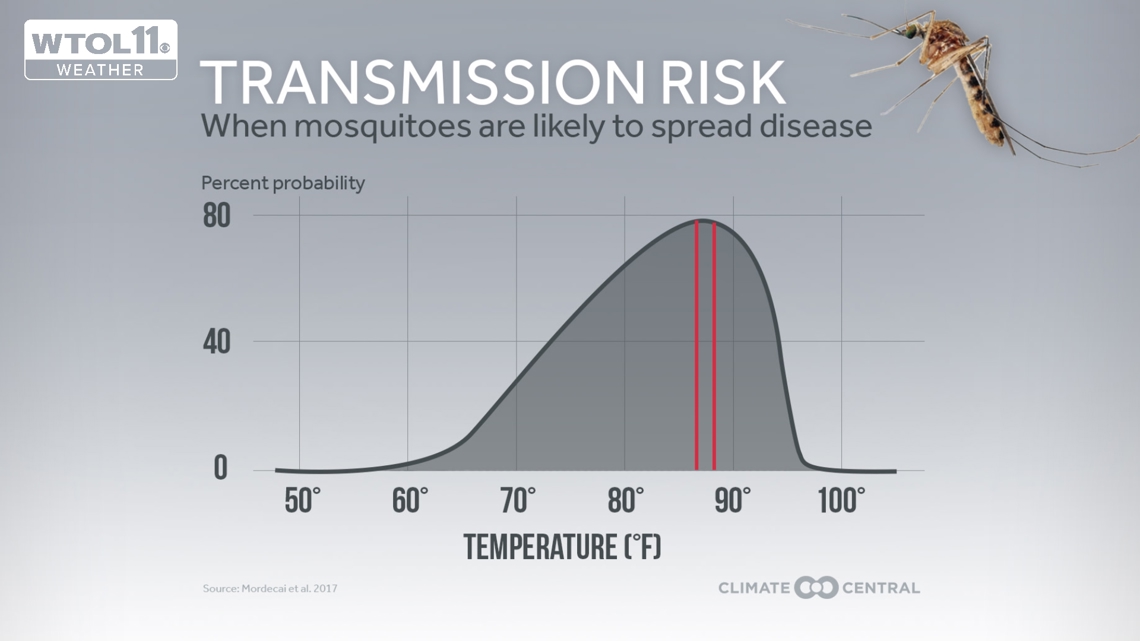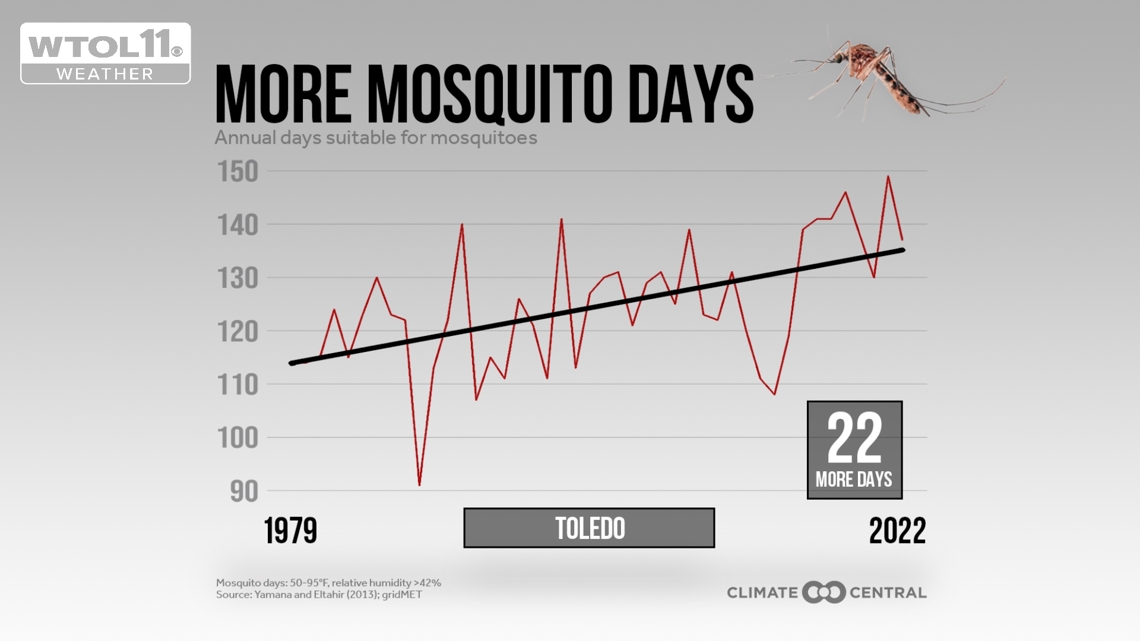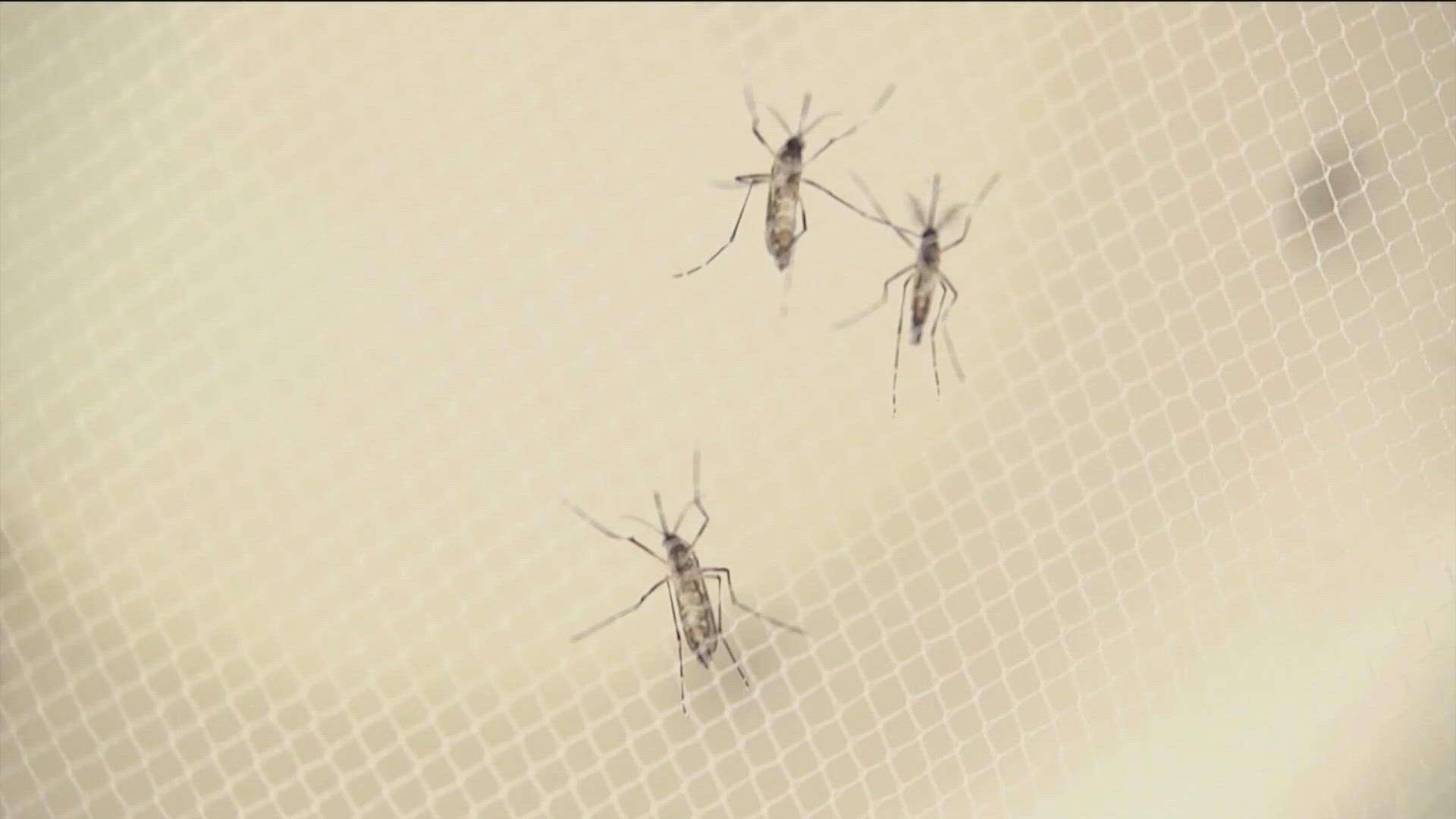TOLEDO, Ohio — On Monday, Monroe County health officials announced they had detected a human case of the West Nile virus within the county and six cases in the state of Michigan.
But has the warmer weather played a role in how long mosquitos stick around?
As it turns out, our warming climate could be driving an increase in mosquito-borne illnesses.
The temperature range for peak transmission for mosquito-borne illnesses is right around 79 degrees to 84 degrees, based on a study done by Climate Central. With our above-average temperatures and drought conditions lately, areas that are closer to some form of water function as a beacon for mosquitoes to feast on humans as the warmer and drier conditions stick around in the month of September.


Dr. Heidi Brown is an epidemiologist at the University of Arizona and studies the influence that climate change has on disease transmission. That includes how the season for West Nile virus could be getting longer.
"A mosquito's life cycle, going from egg to adult and then even going out and host-seeking, is driven by climate, is driven by the weather — the temperature that it’s experiencing, the humidity — in terms of survival," Brown said.
Brown further explained the process.
"If I'm (a mosquito) if it’s really warm, I’m going to build up my population quickly. If I have precipitation events that are creating standing water, I'm creating habitat," Brown said. "And if it’s humid, then the mosquitoes are able to fly to live longer and potentially to fly further because they’re not desiccating, they’re not drying out."
Here in northwest Ohio and southeast Michigan, warm and dry conditions are dominating our area. But are these conditions what fueled the latest case of West Nile in Monroe County?
"When we get the drought, we get sort of compression of those water sources," Brown said. "So the mosquitoes are getting compressed and the birds are going into those places and you’re getting that interaction more quickly. And then if you sort of throw what we humans are doing of how we’re engaging with our landscape, are we then exposing ourselves to it."
Our climate has warmed significantly over the past 50 years, which has resulted in the increase of more mosquito days, where warmer days are helping mosquitos stick around and as Brown said, in turn, open humans up to more illnesses.


MORE FROM WTOL 11 WEATHER:

